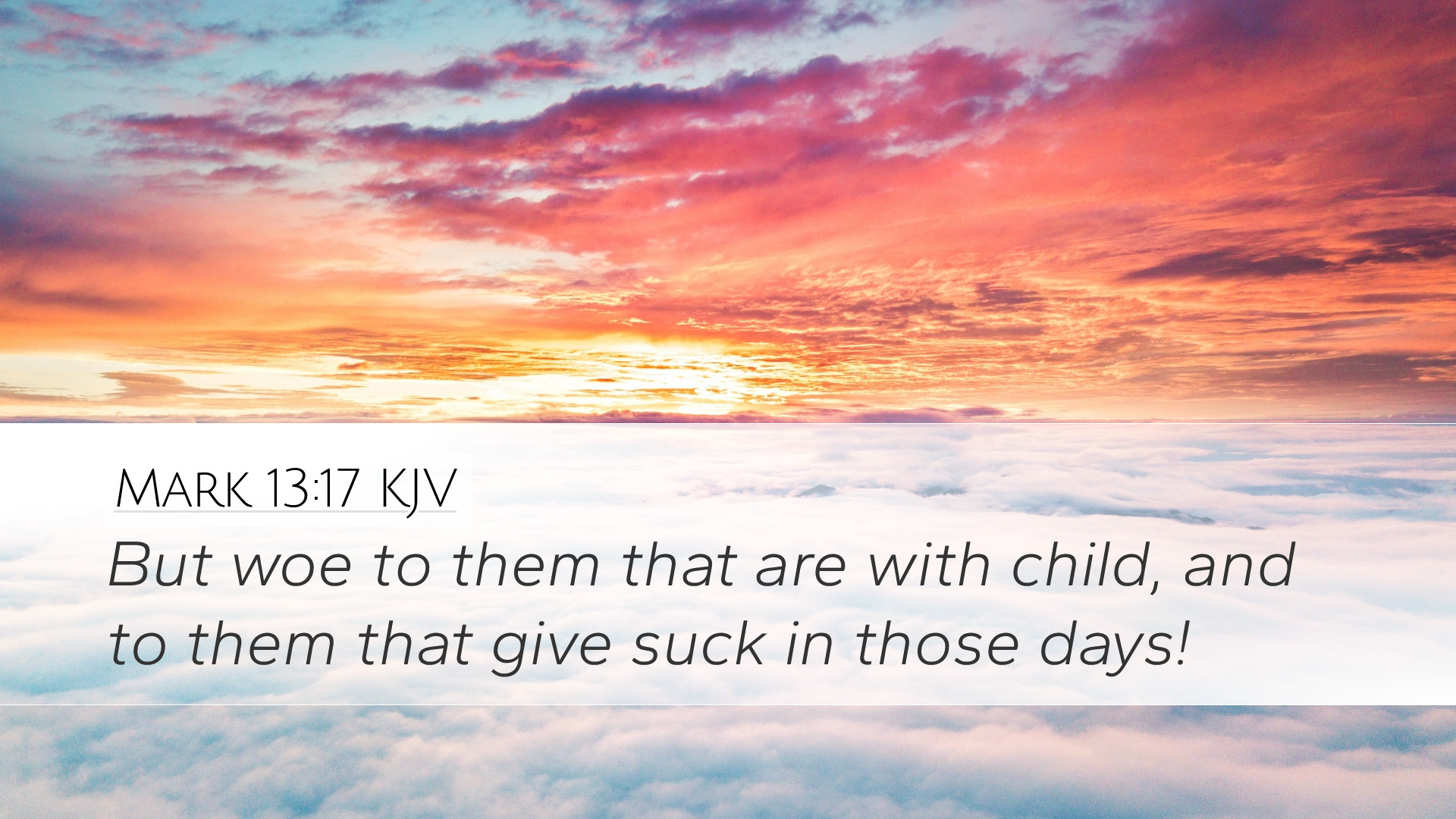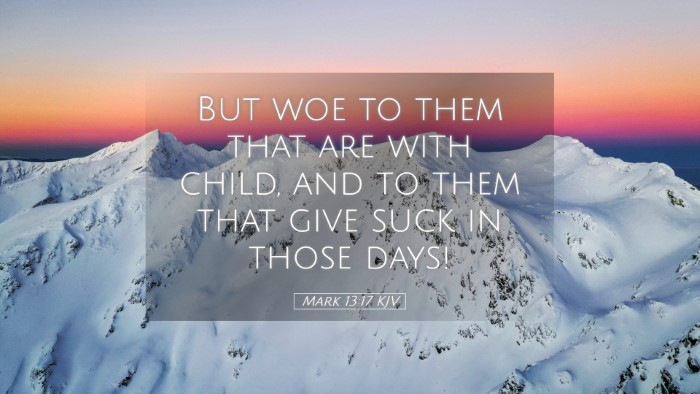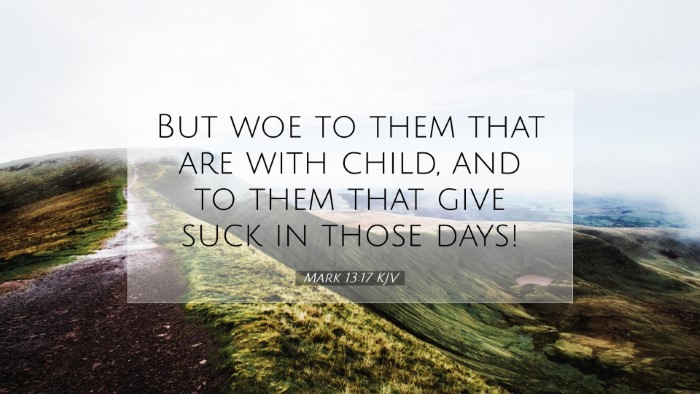Commentary on Mark 13:17
Introduction
Mark 13:17 states, "But woe to those who are pregnant and to those who are nursing babies in those days!" This verse emerges in the context of Jesus’ discourse regarding the destruction of the temple and the signs of the end times. The intensity of the prophecy and its implications can be analyzed through various commentaries by esteemed theologians such as Matthew Henry, Albert Barnes, and Adam Clarke.
Contextual Analysis
The setting of Mark 13 is Jesus' teaching during the last days before His crucifixion, where He demonstrates a prophetic insight into the impending judgment. As he addresses the disciples about Jerusalem's destruction, this particular verse emphasizes the hardships that lay ahead for certain groups of people.
Historical Background
Both Matthew Henry and Adam Clarke provide insights into the historical backdrop surrounding this prophecy. The destruction of Jerusalem in AD 70 serves as a critical reference point. This event was characterized by tremendous suffering and tribulation, particularly impacting those vulnerable in society, such as pregnant women and nursing mothers.
Theological Reflection
The commentary of Albert Barnes offers a theological reflection on the implications of the "woe" pronounced in this verse. The use of "woe" indicates a deep sorrow and impending disaster that will strike specific groups. In the context of Jewish culture, women who are pregnant or nursing would experience heightened distress, especially during a time of crisis when flight and survival become paramount.
Moral Lessons
- Importance of Preparedness: Jesus urges believers to be prepared for tribulation. The warning illustrates the necessity for spiritual, emotional, and physical readiness amidst trials.
- Compassion for the Vulnerable: The verse underscores God's concern for the most vulnerable in society, challenging believers to uphold compassion in times of crisis.
- The Value of Community Support: The hardships described emphasize the importance of communal support and care for those in distress, especially those who are unable to fend for themselves.
Commentators' Insights
Matthew Henry
Matthew Henry interprets this passage with a focus on the emotional and physical toll that Jerusalem’s destruction will bring. He emphasizes that the burdens of those who are pregnant and nursing—who shall be fleeing amidst the chaos—will add to their woes. His commentary suggests a call for believers to find solace in God's providence even in desperate circumstances.
Albert Barnes
Albert Barnes elaborates on the practical implications of this warning. He asserts that these words illustrate the futility of earthly concerns when faced with divine judgment. But, as he proposes, this woe can also function as a call to prayer for deliverance and a reminder that in times of great sorrow, God’s peace remains accessible through faith.
Adam Clarke
Adam Clarke takes a similar approach, positing that this verse describes the unique suffering of women during times of great distress. He points out the societal repercussions that arise in such crises, as mothers find themselves unable to care for their children amidst chaos. Clarke also remains firm in the belief that God’s mercy is present even amidst the tribulations predicted.
Implications for Today
Reflecting on the challenges faced by mothers today, there can be a broader application of this verse to contemporary issues. The plight of the vulnerable in times of global crises, pandemics, and natural disasters underscore that the woes of the past are, unfortunately, still relevant. As we study Mark 13:17, we are reminded of our responsibility to advocate for the weak and be vessels of God's compassion in our communities.
Conclusion
Mark 13:17 serves not only as a historical warning but also as a moral exhortation to contemporary believers. The synthesis of insights from Matthew Henry, Albert Barnes, and Adam Clarke enriches our understanding of this verse. There is a call to be vigilant, to support those in distress, and to recognize that regardless of the trials we face, God remains sovereign and compassionate towards His people.


